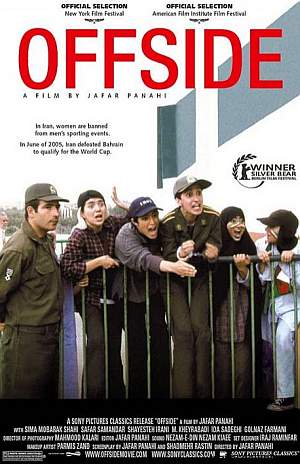 Full disclosure at the outset: I accepted the author’s offer of a free copy of this book, in exchange for an honest review. Author Lloyd dedicates this debut novel, appropriately, “to all the invisible heroes in the world who risk their own lives to save others.”
Full disclosure at the outset: I accepted the author’s offer of a free copy of this book, in exchange for an honest review. Author Lloyd dedicates this debut novel, appropriately, “to all the invisible heroes in the world who risk their own lives to save others.”
It’s the opener for a projected series, the Vormund/Ames Files, dealing with a secretive consulting firm that caters to governments and businesses with needs in the security and counter-terrorism area. What they provide is usually advice and analysis –but there are times when they go beyond that. While they’re not amoral mercenaries simply out for a buck –they choose to be on the side of good, not evil– they may operate on the edge of the law, and in operations where their employers sometimes might want some “plausible deniability.” The author’s own comment (in a personal message to this reviewer) sums her work up best: “There are serious themes, but framed in terms of good, evil, and hope. I consider my characters to be imperfect people trying their best in an imperfect world.”
Though published this year, the book is set in 2008. A few months before it opens, a small party of innocent and idealistic American botanists ventured into the jungles of Honduras, researching medicinal plants. Unfortunately, they blundered into the territory used by drug lord Hector Vega, and while trying to flee from a fire fight between his minions and a rival gang, they were all brutally gunned down. Both the U.S. and Honduran governments know, from eyewitness testimony, that Vega was responsible; but his political connections and back-scratching arrangements give him blank-check immunity. He’s not as home free as he imagines, however, because the grief-stricken fiancee of one of the murdered men is a soft-spoken young woman from Georgia named Elizabeth Ashton. Liz is a decent, ethically-oriented person who cares about others and about doing the right thing. She’s also a professional sniper for the FBI, with the rank of Special Agent, and probably as deadly a markswoman with a rifle as it’s humanly possible to be.
The plot here has two focal points of action (and this doesn’t disclose anything that’s not already outlined in the cover copy): the Vega problem in the early chapters, and the main plot strand, code-named “Operation Angelica.” Law enforcement runs in Liz’s family (her father is a county sheriff, and her brother a state trooper); respect for legal due process and commitment to basic justice are both important principles for her. When they’re in irreconcilable conflict, and she has to decide which one trumps the other, she doesn’t take it lightly. Personally, I don’t have any problem with her decision (I’m much less hard on her on that score than she is on herself!). But it’s one that, eventually, brings her to the notice of the Vormund/Ames management –who are impressed rather than scandalized. That leads to a job offer (and given the series title, it’s no surprise that she accepts!).
The company’s current big project in hand is a rescue mission for a group of hostages –especially a critically ill journalist with both Columbian and French citizenship– held by a drug-trafficking Marxist guerrilla rebel group in the South American jungle. We also have a sub-plot involving a high-ranking CIA official with a gambling-debts problem and a lot fewer ethical scruples than he needs to have.
Lloyd’s prose style is accomplished and assured, which is to say that she handles diction, syntax, and vocabulary very well (a refreshing experience nowadays!). In 253 pages, I only found four typos, which indicates pretty good proofreading. She also appears to have genuine technical knowledge of firearms (although modern pistols don’t have to be “cocked,” as one is here; but many writers make that minor mistake) and of the training, procedures and equipment involved in SWAT-style ops; I don’t have personal experience in that area, but the writing has a solidly realistic feel to me. Not only Liz, but all of the major characters here are clearly delineated and lifelike.
Character and relationship development occupies more of the book than action, as does planning, intelligence gathering and set-up –that’s also realistic for this type of thing, where the time involved in actual gun-blazing action, if you’ve planned well, is actually relatively brief. That said, there’s a good deal of taut tension that mounts steadily before the shooting starts, and there’s a high body count when it’s finished. (Also, GWG fans will appreciate the fact that this novel gives us at least two major female characters who can handle a gun capably, not just one; CIA agent Katherine Williams is certainly one formidable lady!)
For the most part, the plotting here is linear and straightforward, without a lot of convolution, and this is a quick read. I withheld the fifth star in my rating because of several logical missteps in the CIA-official subplot; but that didn’t stop me from really liking the book, and I definitely intend to follow the series!
Note: Liz and other characters use a certain amount of bad language, of the d/h/s/a-word sort, at times, but no obscenity or religious profanity. Their speaking style is well within the bounds of realism for these types of characters and situations. One of the flashbacks has Liz recalling a conversation she and her fiance had when they were lying together in bed, and it’s clear that another couple make love at one point; but there’s no explicit sex, and Lloyd doesn’t portray any of these four people as promiscuous types.
Author: Juliene Lloyd
Publisher: Dark Sword Press. Available through Amazon, both for Kindle and as a printed book.
[A version of this review previously appeared on Goodreads]

 Molly Dawes (Turner) has just turned 18, works in a nail-salon, lives on a council estate with her five siblings, pregnant mom and unemployable father, and has a Muslim boyfriend who is cheating on her. Oh, she looks kinda like a chav version of Daenerys Targaryen too, but given her unsurprising lack of dragons, has no apparent future. Throwing up at the end of a night out with her gal pals, she finds herself in front of an Army recruitment office, and decides it offers a potential way out from her dead-end life. Naturally, it’s not quite as easy as that, since her boyfriend is unimpressed, and her parents think the big announcement is that she’s pregnant. But she persists, and the film follows her journey through basic training, as the mouthy peroxide blonde turns into a combat medical technician.
Molly Dawes (Turner) has just turned 18, works in a nail-salon, lives on a council estate with her five siblings, pregnant mom and unemployable father, and has a Muslim boyfriend who is cheating on her. Oh, she looks kinda like a chav version of Daenerys Targaryen too, but given her unsurprising lack of dragons, has no apparent future. Throwing up at the end of a night out with her gal pals, she finds herself in front of an Army recruitment office, and decides it offers a potential way out from her dead-end life. Naturally, it’s not quite as easy as that, since her boyfriend is unimpressed, and her parents think the big announcement is that she’s pregnant. But she persists, and the film follows her journey through basic training, as the mouthy peroxide blonde turns into a combat medical technician.





 Patty (Eleniak) is in an abusive relationship, but finds an outlet through an unconventional source – boxing. This comes through her friend June (Ellis), who works occasionally as a ring-girl for a promoter (Doman). One of his fighters is Tommy (Colby), a part-time boxer whose main source of income is as a limo driver, but also helps run a gym in the upstate New York city of Troy, which helps keep the local kids out of trouble. Reluctantly, he agrees to train Patty, who develops, not only physical strength as a result, but the self-confidence to handle her situation.
Patty (Eleniak) is in an abusive relationship, but finds an outlet through an unconventional source – boxing. This comes through her friend June (Ellis), who works occasionally as a ring-girl for a promoter (Doman). One of his fighters is Tommy (Colby), a part-time boxer whose main source of income is as a limo driver, but also helps run a gym in the upstate New York city of Troy, which helps keep the local kids out of trouble. Reluctantly, he agrees to train Patty, who develops, not only physical strength as a result, but the self-confidence to handle her situation. If the
If the 

 Faster, Pussycat is one of the icons of the action heroine genre, literally entire decades ahead of its time. This Japanese version uses a lot of the same elements, starting with a trio of go-go girls on the lam, under their macho leader. They stumble across a wheelchair-bound man and his muscular if taciturn companion, who appears to be stashing a large sum of money somewhere on the premises. If only they could find it… There’s also an innocent who gets entangled in the web of deceit and counter-deceit – in the original, it was because she witnessed them kill her boyfriend, while in this case, it’s after she apparently witnesses the three beat up a policeman, who stopped them for speeding, and discovered the dead body stashed in the back of their pick-up truck.
Faster, Pussycat is one of the icons of the action heroine genre, literally entire decades ahead of its time. This Japanese version uses a lot of the same elements, starting with a trio of go-go girls on the lam, under their macho leader. They stumble across a wheelchair-bound man and his muscular if taciturn companion, who appears to be stashing a large sum of money somewhere on the premises. If only they could find it… There’s also an innocent who gets entangled in the web of deceit and counter-deceit – in the original, it was because she witnessed them kill her boyfriend, while in this case, it’s after she apparently witnesses the three beat up a policeman, who stopped them for speeding, and discovered the dead body stashed in the back of their pick-up truck. Being an action heroine is a rebellious, possibly revolutionary, act against society: what counts, depends entirely on how your society views women. Going to a soccer game, for example, would not qualify you in the Western world – but as in Ancient Greece, sporting events in Iran are strictly male-only, and a woman who attends one and gets caught, will find herself handed over to the Vice Squad. It redefines requirements somewhat, to say the least. The film tells the story of a number of women, who dress as men to sneak into a crucial 2005 World Cup qualifier between Iran and Bahrain, only to find their disguises imperfect. They’re held in an area, just out of sight of the game, by a group of soldiers, who really have better things to do themselves.
Being an action heroine is a rebellious, possibly revolutionary, act against society: what counts, depends entirely on how your society views women. Going to a soccer game, for example, would not qualify you in the Western world – but as in Ancient Greece, sporting events in Iran are strictly male-only, and a woman who attends one and gets caught, will find herself handed over to the Vice Squad. It redefines requirements somewhat, to say the least. The film tells the story of a number of women, who dress as men to sneak into a crucial 2005 World Cup qualifier between Iran and Bahrain, only to find their disguises imperfect. They’re held in an area, just out of sight of the game, by a group of soldiers, who really have better things to do themselves. Particularly outstanding is Irani’s tomboy, who becomes the de facto leader of the group, and continually hassles the guards. The film has a surprising amount of straight-faced humour, such as her riposte when asked if she’s a boy or a girl: “Which do you prefer?” Or one girl’s response when told they can’t go in because the men will be cursing: “We promise not to listen.” Similarly, when another needs to use the bathroom, this poses problems, since naturally there are no women’s facilities. The solution involves the impromptu conversion of a poster into a mask, though this hardly resolves things. Obviously, it’s not a traditional genre piece, and it’s this
Particularly outstanding is Irani’s tomboy, who becomes the de facto leader of the group, and continually hassles the guards. The film has a surprising amount of straight-faced humour, such as her riposte when asked if she’s a boy or a girl: “Which do you prefer?” Or one girl’s response when told they can’t go in because the men will be cursing: “We promise not to listen.” Similarly, when another needs to use the bathroom, this poses problems, since naturally there are no women’s facilities. The solution involves the impromptu conversion of a poster into a mask, though this hardly resolves things. Obviously, it’s not a traditional genre piece, and it’s this  Former romance writer Evanovich switched genres and hit paydirt immediately with the first in the series, describing the adventures of former Newark lingerie buyer Stephanie Plum. She’s forced, through financial misadventure, to find a new job, and goes for a job filing paperwork for her bail bondsman cousin, but ends up hunting FTA’s (those who Failed To Appear for their court date) instead. She starts at the top, with suspended cop Joe Morelli, who has vanished after being accused of shooting an unarmed man. But as the witnesses to the incident start to die, Plum realises things may not be what they seem. The novice bounty huntress is well out of her depth, not least when she crosses psycho boxer Ramirez – until help comes from an unexpected source…
Former romance writer Evanovich switched genres and hit paydirt immediately with the first in the series, describing the adventures of former Newark lingerie buyer Stephanie Plum. She’s forced, through financial misadventure, to find a new job, and goes for a job filing paperwork for her bail bondsman cousin, but ends up hunting FTA’s (those who Failed To Appear for their court date) instead. She starts at the top, with suspended cop Joe Morelli, who has vanished after being accused of shooting an unarmed man. But as the witnesses to the incident start to die, Plum realises things may not be what they seem. The novice bounty huntress is well out of her depth, not least when she crosses psycho boxer Ramirez – until help comes from an unexpected source… Even given that this was shot in 6 days for $5,000, it sucks on every conceivable level. Scenes are twice as long as necessary, or totally superfluous. The script has little of interest. And since there’s absolutely no sign of talent whatsoever, I have to presume the director slept with his leading lady. Hope she was better in bed than on screen. Rachel and Jane execute drug deals for their boss – emphasis on “execute”, since they get both the cash and your drugs. Jane’s qualms get worse when Rachel is shot dead, and she leaves the organization, until an FBI agent forces her to return, in order to kill her employer. She also gets frequent visits from the ghost of her dead friend.
Even given that this was shot in 6 days for $5,000, it sucks on every conceivable level. Scenes are twice as long as necessary, or totally superfluous. The script has little of interest. And since there’s absolutely no sign of talent whatsoever, I have to presume the director slept with his leading lady. Hope she was better in bed than on screen. Rachel and Jane execute drug deals for their boss – emphasis on “execute”, since they get both the cash and your drugs. Jane’s qualms get worse when Rachel is shot dead, and she leaves the organization, until an FBI agent forces her to return, in order to kill her employer. She also gets frequent visits from the ghost of her dead friend. This is the first Cyn-flick seen in a while: rumour has it, she made a brief diversion (after implants) into erotic thrillers, but the good news is, she’s back in the martial arts arena. The bad news is, er, the film. It starts with her DEA colleague, about to bust a Colombian drug-lord, promising Julie (Rothrock), “Four kids, a dog, and a house with a white picket fence.” You
This is the first Cyn-flick seen in a while: rumour has it, she made a brief diversion (after implants) into erotic thrillers, but the good news is, she’s back in the martial arts arena. The bad news is, er, the film. It starts with her DEA colleague, about to bust a Colombian drug-lord, promising Julie (Rothrock), “Four kids, a dog, and a house with a white picket fence.” You